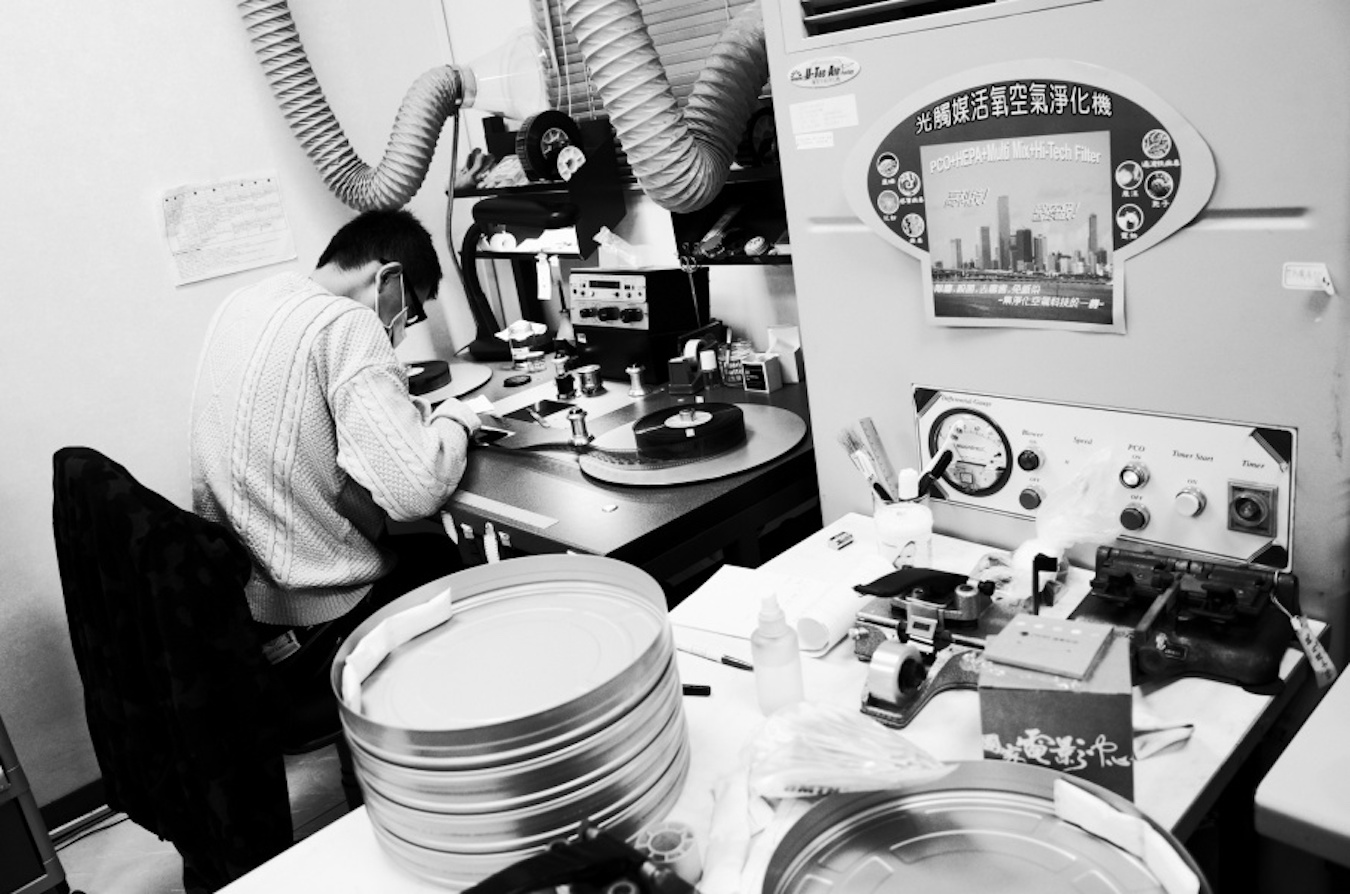by Brian Hioe
語言:
English
Photo Credit: Archiving Time/Film Still
ARCHIVING TIME (數電影的人), an hour-long documentary on Taiwanese film preservation currently available on Taiwan+, is a well-executed take on what could be a rather cut-and-dry subject. Namely, the film proves an argument for the importance of film preservation, as well as a documentary film that details the process.
Archiving Time follows a number of workers at the Taiwan Film Archive, showing various aspects of the work of film preservation. This ranges from visiting old collectors and picking up reels, fixing broken reels by hand, and digitizing the film. The documentary also shows some aspects of post-production, such as adjusting coloration, digitally removing damage to the film, or adjusting sound.
There are no real main characters in the film. The focus is not on any of the individual workers, per se, but on them as a group. The film goes out of its way to speak with preservation workers whose experience ranges from a few years working in the field to decades.
These individuals speak of their own views on preserving film, in that some view it as a manual, technical, and somewhat thankless task, but a necessary one. Likewise, some of the interviewees describe why they choose to preserve all films they can, rather than only certain classics, because of the view that what is considered a classic or masterpiece is inherently subjective, and any work preserved could provide valuable material for future research.
Indeed, as depicted in Archiving Time, film preservation is something of a Sisyphean struggle. There is no way to preserve all films made and much film stock has already decayed by the time that archivists get to it. Similarly, there is no way to fully restore film to the condition it was in at the time of release, despite the efforts of preservationists. And it takes an enormous amount of time to restore film, up to a month just to restore ten minutes. As such, the capacities of preservationists are limited.
Individuals that work on film preservation are not heroized in the film particularly, even if the film clearly does see their work as important. Nor is the focus on their personal stories, or even the stories of the films that are being preserved. Yet the film’s interest seems to be the worldviews of film preservation workers and the worldviews present in Taiwanese film that would otherwise be lost. If these films are not preserved, worldviews that would otherwise fade away.
Nevertheless, to this extent, Archiving Time takes a somewhat philosophical approach to its depiction of preserving film. And, while the film may not reveal too much beyond what the day-to-day work of film preservation consists of, the film proves a highly reflexive one.
The film primarily just details the day-to-day work of preserving film, with no real plot or conflict that drives the narrative, then. But why Archiving Time stands a cut above other documentaries is because of its skill in storytelling. That is, while the film mostly treats its subjects mimetically, it also uses some inventive stylistics with regards to its camera work so as to reflect how the interview subjects reflect on the topic of film preservation.
This more broadly can be said to be a trend in contemporary Taiwanese documentaries, which sometimes incorporate elements of video art. Nevertheless, Archiving Time does not take this to the extent that other contemporary Taiwanese documentaries, most notably Le Moulin, take this. In many ways, Archiving Time would not be out of place as a televised documentary, rather than film festival fare.
Perhaps contemporary Taiwanese documentaries can be said to have a strong emphasis on history and its conservation, as related to trends in Taiwanese identity. So, too, with Archiving Time, which focuses on the act of conserving history in itself through film. Though the documentary is attentive to the curatorial choices made by film preservationists, one does wonder at the meta-contextual aspect of a film about preserving film. Archiving Time can also be understood in line with the work of those it documents, in providing a snapshot of present work in preserving past film for future generations.



